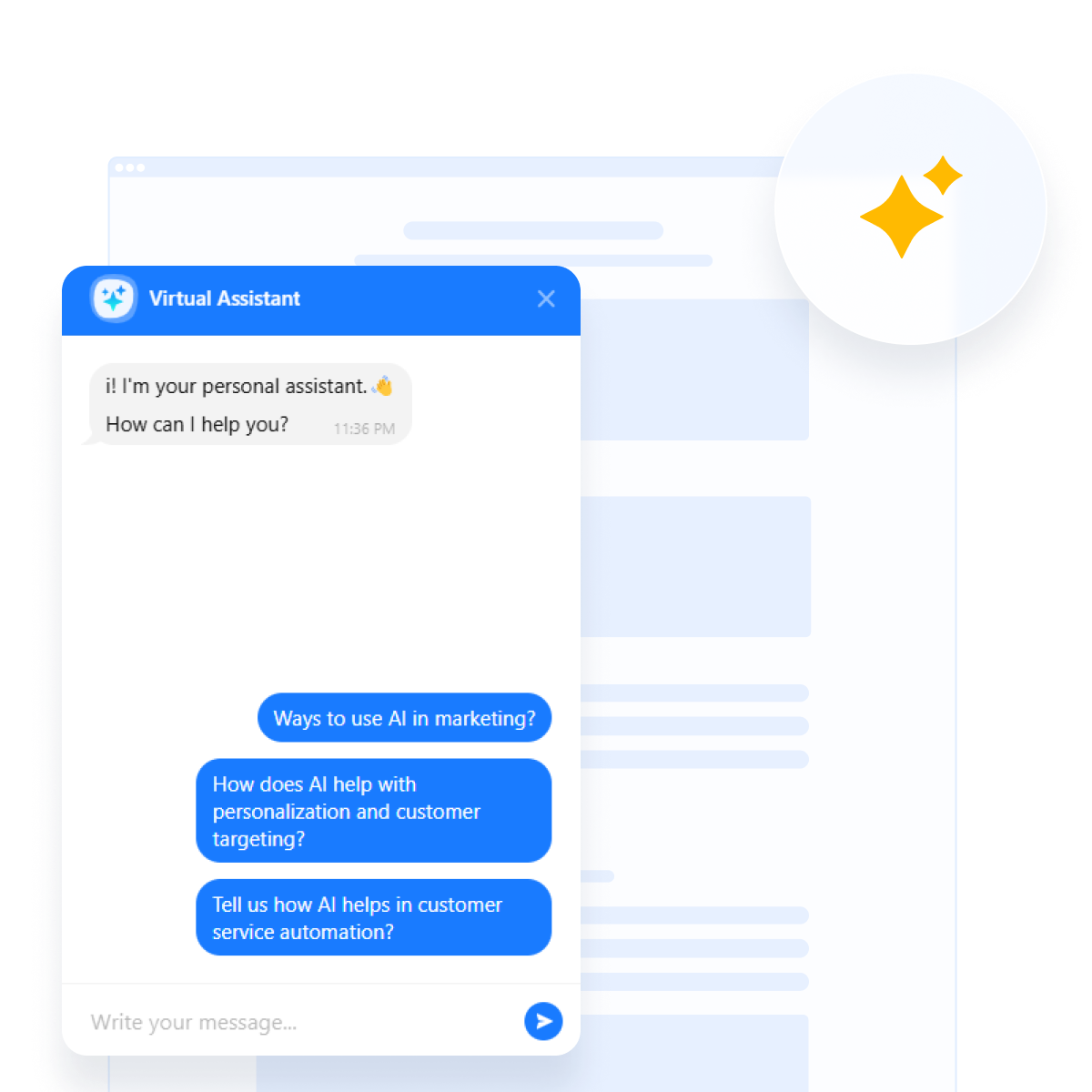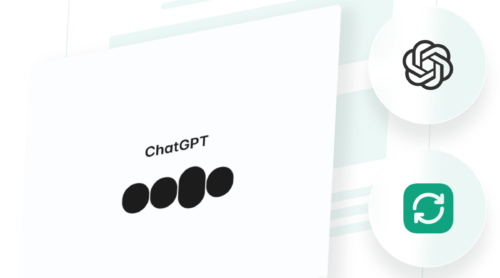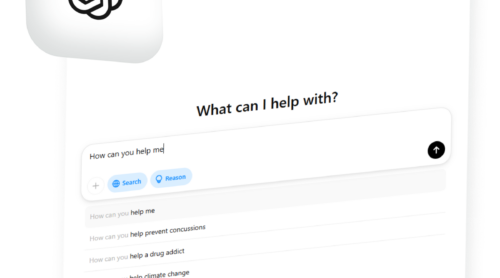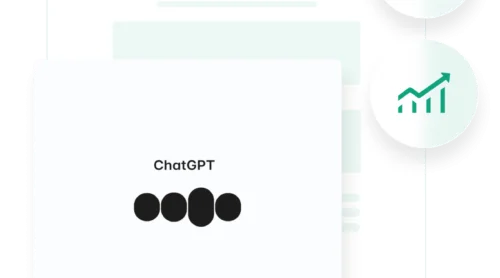Artificial intelligence has become a cornerstone in modern marketing, reshaping the way businesses connect with customers. Its ability to process large datasets, automate repetitive tasks, and deliver personalized experiences has made it an indispensable tool for marketers.
As AI continues to evolve, its role in marketing campaigns grows even more significant, enhancing everything from customer targeting and content creation to predictive analytics and customer service automation. Implementing AI effectively in marketing campaigns can drive better results, streamline operations, and create more impactful, data-driven strategies.
What Is AI in Marketing?
AI in marketing refers to the application of artificial intelligence technologies to enhance and automate marketing processes. It allows marketers to leverage data, algorithms, and machine learning to improve decision-making, personalize customer experiences, and drive efficiencies. With AI, marketers can analyze vast amounts of data quickly and gain insights into customer behavior, preferences, and trends, making it possible to craft highly-targeted campaigns.
AI can be used in a variety of ways to optimize marketing efforts. For instance, machine learning algorithms can help identify which customers are most likely to convert, enabling more precise targeting. Predictive analytics powered by AI can forecast trends and customer behavior, allowing businesses to adapt their strategies in real-time. Additionally, AI can assist with dynamic pricing, helping companies adjust prices based on demand, competitor pricing, and consumer sentiment.
By automating time-consuming processes, AI allows marketing teams to focus on higher-level activities, ultimately boosting productivity and improving the overall effectiveness of marketing campaigns. Whether it’s optimizing ad performance, personalizing customer interactions, or improving lead scoring, AI is rapidly becoming an essential tool for achieving measurable success in modern marketing.
Ways to Use AI in Marketing
AI is transforming marketing by enabling more effective personalization, content optimization, predictive insights, and customer interaction automation. Here’s how you can harness AI in different areas of marketing.
Personalization & Customer Targeting 🎯
AI helps marketers deeply understand consumer behavior through data analysis. By analyzing past interactions, preferences, and browsing habits, AI can predict what customers are likely to purchase next and personalize their experience across channels. Whether it’s tailoring email content, recommending products, or crafting personalized website experiences, AI ensures that marketing efforts are relevant and engaging for each individual.
Here are some ways AI enhances personalization:
- Targeted email campaigns based on user behavior
- Personalized recommendations through predictive algorithms
- Dynamic website content tailored to individual preferences
Content Creation & Optimization ✍
Creating high-quality, engaging content is essential for digital marketing success. AI tools like natural language generation (NLG) and machine learning algorithms help marketers create, curate, and optimize content for different channels. For instance, AI can generate product descriptions, blog posts, or even social media captions. It can also analyze existing content to suggest improvements, ensuring that messaging resonates with the target audience while boosting SEO performance.
Here’s how AI can assist in content creation and optimization:
- Automated content creation like blog posts and social media captions
- SEO optimization through keyword analysis and content suggestions
- Content curation based on audience interests and trends
Predictive Analytics 📈
One of the most powerful applications of AI in marketing is predictive analytics. By analyzing historical data and identifying patterns, AI helps businesses forecast future trends, customer behaviors, and market demands. This insight enables marketers to tailor their strategies proactively, optimizing campaigns before they even launch. Predictive models can also refine lead scoring, ensuring that marketing efforts are focused on prospects most likely to convert.
Here are some ways AI can enhance your marketing strategies with predictive analytics:
- Forecast customer behavior to improve targeting and campaign efficiency
- Refine lead scoring to prioritize high-conversion opportunities
- Predict market trends and adjust marketing strategies accordingly
Chatbots & Customer Service Automation 🤖
AI-powered chatbots are revolutionizing customer service by providing instant, round-the-clock support. These virtual assistants can handle inquiries, resolve issues, and guide customers through purchasing decisions without human intervention.
Chatbots improve efficiency, provide personalized recommendations, and ensure a smooth customer experience, all while reducing the workload on support teams. With AI-driven automation, brands can respond to customer needs faster and more effectively, leading to better customer satisfaction and retention.
Here’s how AI-driven chatbots improve customer service:
- 24/7 customer support through AI-driven chatbots
- Personalized recommendations based on user interactions
- Efficient issue resolution and FAQ handling with AI
Incorporating AI into these aspects of marketing can lead to more efficient campaigns, higher engagement, and improved customer satisfaction. By leveraging AI tools, marketers can stay ahead in a competitive, data-driven landscape.
This AI-driven chatbot not only saves time but ensures your business can engage customers instantly — boosting both experience and marketing performance.
With Elfsight, you can create a chatbot tailored to your marketing strategy. Whether you’re new to AI or an expert, Elfsight’s simple setup and versatile features help enhance your marketing campaigns.
Boost your marketing efforts with a smart AI chatbot – build now!
AI Marketing Use Cases
AI is increasingly becoming a core part of successful marketing strategies. From automating mundane tasks to providing deep insights into consumer behavior, AI tools are empowering marketers to enhance campaigns and improve overall performance. Below is a closer look at how AI is being used in key marketing areas.
Email Marketing Automation: Personalization at Scale
AI revolutionizes email marketing by automating segmentation and personalization on a large scale. Rather than manually grouping audiences or sending generic emails, AI analyzes user behavior to deliver content tailored to specific interests, maximizing engagement.
- Real-Time Segmentation. AI divides your email lists into highly targeted segments based on past actions and preferences.
- Tailored Content. Personalized subject lines, offers, and recommendations boost open rates and conversion.
- Optimal Send Times. AI optimizes delivery based on when individual users are most likely to open the email.
Social Media Campaigns: Enhancing Engagement and Targeting
AI in social media marketing helps marketers go beyond simply scheduling posts. It’s now about analyzing trends, predicting audience behavior, and optimizing content for maximum reach.
- Smart Content Scheduling. AI figures out the best times to post for each platform based on historical data and audience activity.
- Targeted Audience Segmentation. AI helps identify niche groups and tailor ads for maximum relevance, boosting engagement.
- Influencer Identification. AI tools analyze social media profiles to find influencers whose followers match your target demographic, saving time on research.
Ad Campaign Optimization: Maximizing ROI
AI is increasingly used to optimize digital advertising campaigns by automating bidding, refining targeting, and testing creative strategies to enhance ad performance.
- Dynamic Bidding. AI adjusts ad bids in real-time to ensure you get the best price for ad placements while staying within budget.
- Advanced Targeting. AI digs deeper into audience data to refine targeting, ensuring your ads reach the right people at the right time.
- Creative Optimization. AI tests different ad creatives and messages to understand which ones are most effective, enabling continual improvements.
AI is taking marketing to the next level by automating repetitive tasks, optimizing campaigns in real-time, and providing insights that improve performance. From email campaigns to social media ads, the impact of AI on marketing is undeniable — creating more personalized, effective, and efficient marketing strategies.
How to Use AI to Promote Your Business
Implementing AI into your marketing strategy can be a game changer for your business. By leveraging AI tools, you can enhance customer engagement, improve efficiency, and ultimately drive better results. Here’s a step-by-step guide to help businesses start using AI effectively:
Step 1: Assessing Needs
The first step is to evaluate your marketing workflow and identify areas where AI could provide value. Here’s how to pinpoint these tasks:
- Customer insights: Do you need better data analysis to understand your audience?
- Repetitive tasks: Are there manual processes that can be automated?
- Personalization: Would your customers benefit from tailored experiences?
Step 2: Choosing Tools
Once you’ve identified tasks that can be optimized, it’s time to choose the AI tools best suited for your business needs. Below is a table that breaks down popular AI tools for various marketing functions:
| Marketing Function | AI Tool Suggestions | Purpose |
|---|---|---|
| Content Creation | Jarvis, Copy.ai | Generate blog posts, social media captions, and product descriptions |
| Customer Segmentation | HubSpot, Segment | Segment customer data based on behavior, demographics, etc. |
| Email Campaigns | Mailchimp, ActiveCampaign | Automate email workflows and personalize content |
| Social Media Management | Hootsuite, Buffer | Automate posting, monitor engagement, and analyze trends |
| Chatbots & Customer Service | Drift, Intercom | Automate responses, qualify leads, and improve customer service |
Step 3: Implementation & Testing
Once you’ve selected the right tools, the next step is to integrate AI into your workflow and track results. Here are some best practices for successful implementation:
- Start small: Begin with one area (like email automation) and expand as you get comfortable.
- Test & optimize: Run A/B tests to fine-tune your AI-driven campaigns for maximum results.
- Track KPIs: Measure success with metrics like engagement rates, conversion rates, and ROI.
By assessing your needs, choosing the right tools, and implementing them with a focus on continuous testing, your business can harness the power of AI for better marketing outcomes.
How to Use AI in Digital Marketing
AI is transforming digital marketing by offering automation, optimization, and deeper insights into customer behavior. By integrating AI into your marketing strategy, you can achieve more efficient workflows, improved targeting, and data-driven decision-making. Let’s explore the key areas where AI can be a game-changer.
🔍 AI for SEO
AI is revolutionizing SEO by analyzing vast amounts of search data to recommend optimized keywords, predict trends, and help improve content visibility. AI-powered platforms can also automate tasks like content optimization, ensuring that content is aligned with the latest search engine algorithms. With AI, marketers can enhance their SEO strategies without manual intervention, making it easier to rank higher in search results.
💰 Paid Search & Programmatic Ads
AI in paid search and programmatic advertising streamlines the ad-buying process by automating targeting, bidding, and campaign adjustments. With AI, paid search campaigns can be optimized for better ROI, as the system analyzes real-time user data and adjusts bids for maximum efficiency. Programmatic advertising uses AI to automatically purchase ad space and target the right audience in real time, improving ad performance.
📱 Social Media Marketing Automation
Social media marketing is made easier with AI tools that automate posting schedules, track engagement, and even predict trends. AI can monitor social media conversations, gauge customer sentiment, and suggest content strategies to help brands stay relevant. By analyzing user engagement, AI can even predict which types of posts are likely to perform best, making content creation more efficient.
📊 Performance Tracking with AI
AI tools provide advanced performance tracking capabilities, analyzing campaign results in real time. With AI-powered analytics platforms, businesses can track a wide range of metrics, including user engagement, conversion rates, and ROI, across various marketing channels. This allows businesses to make immediate adjustments to campaigns for better results and ensure they are on the right path to achieving their goals.
By leveraging AI in these key areas of digital marketing, businesses can streamline operations, improve targeting accuracy, and enhance overall marketing performance, leading to greater customer satisfaction and increased ROI.
Automation in Marketing with AI
Artificial intelligence has significantly transformed marketing by automating a wide range of tasks, saving businesses time and improving overall campaign effectiveness. Here are some key marketing tasks that AI can automate, allowing teams to focus on more strategic activities:
| Marketing Task | AI Function | Tools for Automation |
|---|---|---|
| Customer Segmentation | AI analyzes customer behavior and automatically groups them into specific segments based on demographics, preferences, and actions. | HubSpot, Segment |
| Reporting | AI tools automate data collection and generate detailed, real-time reports, offering insights into campaign performance, audience behavior, and overall business metrics. | Google Analytics, Kissmetrics |
| A/B Testing | AI enables marketers to run simultaneous tests, quickly analyzing multiple variations of ads, headlines, or content to determine the best-performing option. | Google Optimize, Optimizely |
| Email Marketing | AI personalizes email content based on customer data, optimizes sending times for maximum engagement, and automates segmentation to send the most relevant messages. | Mailchimp, ActiveCampaign |
AI marketing automation brings a variety of benefits that streamline workflow processes, making it easier for businesses to target the right audience with the right message. Here are some of them:
- Streamlines Workflow. AI automates repetitive tasks, allowing businesses to focus on strategy.
- Enhanced Customer Segmentation. AI groups customers based on behaviors and preferences, tailoring campaigns for greater impact.
- Seamless Reporting. Automates data collection and generates real-time reports, providing actionable insights quickly.
- Optimized A/B Testing. AI evaluates test results instantly, enabling faster decision-making and campaign adjustments.
Additionally, email marketing is enhanced by AI’s ability to segment customers, personalize content, and schedule emails based on customer behavior, all of which boost engagement and conversion rates. These AI-driven processes are integral to successful marketing campaigns as they ensure that businesses can quickly adapt, optimize, and improve their strategies in a data-driven way.
By using AI tools like HubSpot, Google Optimize, and Mailchimp, companies can take their marketing efforts to the next level, automating complex processes while improving their reach and customer interaction. AI not only saves time but also ensures that marketing strategies are more precise, targeted, and impactful.
Conclusion
Integrating AI into your marketing efforts offers numerous advantages, from automating repetitive tasks to delivering personalized customer experiences at scale. By using AI tools for tasks like customer segmentation, content creation, and predictive analytics, businesses can increase efficiency, improve engagement, and drive sales.
To get started, assess your current marketing workflow to identify areas that can benefit from AI. Choose tools suited to your needs and begin small, testing and refining as you go. Embrace the future of marketing and watch your business thrive!






